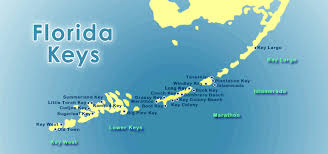After 20 years of litigation, the children of a Korean War veteran and his wife are hoping to realize the dream of their late parents and build a home in the Florida Keys, thereby undoing a government “taking” of the family’s property.
In the 1970s, Gordon and Molly Beyer purchased an undeveloped, nine-acre island in Monroe County, Florida, known as Bamboo Key. Gordon had served in the Marine Corps all over the world and, after his retirement, was U.S. Ambassador to Uganda under Presidents Carter and Reagan. After decades of service to their country, the couple was looking forward to building their retirement home in the Keys.
It was not to be.
When they bought the island, the zoning rules in place permitted their plans. However, Monroe County later designated the island a bird preserve, or “rookery,” and prohibited anything from being built on it. The Beyers were told they could use their property only as a camp site, and they were given a form of “transferrable development right” (TDR), called “rate-of-growth points,” that county officials told them they could sell on the open market in the Keys.
Worthless Transferable Development Rights
County officials could easily afford to give the Beyers TDRs, because they knew that these “points” have absolutely no value in the Keys, where it is difficult to build anywhere in light of environmental restrictions and development already in place. Stuck with worthless TDRs, the couple sued the county for taking their property without just compensation.
When the City of Marathon incorporated in 1999, Bamboo Key fell within the new jurisdiction. City officials, however, kept in place the county’s land-use restrictions on Bamboo Island , leaving the Beyers, and later their heirs, little choice but to sue the city.
By a 2-1 vote, Florida’s Third District Court ruled against the family, and the state’s Supreme Court refused to hear an appeal. The appellate court held that the government did not unconstitutionally take their property, because the “points” could, in theory, be sold to pay for a home elsewhere in the Florida Keys. Besides, the court added, the family still retained “primitive camping rights.”
“For the Birds”
Judge Frank Shepherd, who dissented from the full Third District’s decision not to hear the case en banc, labeled the ruling “for the birds,” because the Beyers are being unlawfully forced “to suffer significant economic injuries.”
Two decades after their parents originally filed suit, the Beyer family is still seeking justice. They have enlisted the support of the Pacific Legal Foundation (PLF), which has taken the case all the way to the U.S. Supreme Court. An initial hearing was held before the High Court in mid-January, and PLF expects to present oral arguments later this year.
Governments – federal, state, and local – have shown remarkable creativity in conjuring up excuses to deprive people of their property rights. They figure that property owners – completely outgunned and easy to roll over – will eventually throw in the towel and do as they are told. But it’s people like the Beyers, whose determination to fight back passed from one generation to the next, who show us how the high and the mighty can be brought low by people who want nothing more than to build a home.
